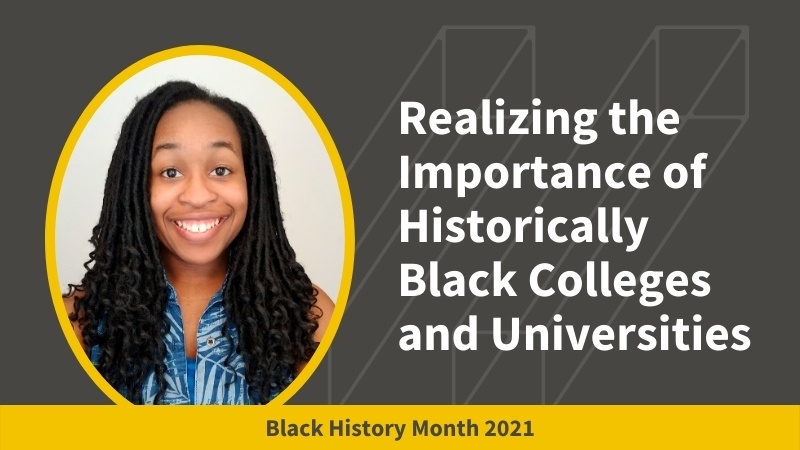
High school senior year was about eight years ago for me. I still remember the stress of college applications and career choices.
I grew up in an area where there weren’t a lot of people who were African-American like myself, and my K-12 schooling was done at a predominantly white institution. I had my heart set on attending University of Michigan, and I was so focused on getting into the school that I didn’t want to consider any other options. I remember my counselor saying that I should consider a historically black college/university (HBCU) after graduation, knowing that being an honor student and being involved in clubs would make me a good candidate for these schools. But in the classroom, I was often the only Black student in the room, so I didn’t hear perspectives on HBCUs from my peers.
I wasn't sure that I wanted to attend a college of predominantly Black students, based on the microaggressions I received from Black peers in high school. I was called strange for being different by both Black and white students. With white students, they mentioned that even though I was Black, I "sounded white." With Black students, I often heard that I wasn't Black enough. Those microaggressions made it hard to be social with other people, and the idea of not fitting in at a primarily Black school freaked me out.
I didn’t know about HBCUs such as Florida A&M University or Clark Atlanta University growing up, and even though I’m thankful for having a family that would educate me on things, I don’t feel that I asked enough questions. Because of that, I shot down my counselor’s idea and attended University of Michigan-Flint. But looking back on things, I have to say I missed out on a major experience attending an HBCU. If I could go back in time, I would tell myself to at least do the research and consider it. For example, I didn’t know about the scholarship opportunities for those institutions that I could have received for being an honor student in high school.
In my current role as an AdviseMI college adviser at Hamady High School, I have helped several students do virtual visits with HBCUs. I now see that I could have been accepted into those universities with merit scholarships. I also feel strongly that I would have had a better experience in the classrooms, as it would have been the first time I was in a room predominantly filled with other educated Black people. I would have had more professors who valued my perspective and my opinions. I feel I would have had a more stable and supportive environment provided by the staff. It would have been the first time I established a connection with other Black students and felt acceptance. I could have learned more about the African diaspora, and I could have built solid networks to draw from after graduation.
HBCUs are valuable because they provide Black students a collection of safe spaces to be themselves, be expressive, and learn about who they are.
I understand through my work and experiences that Black students need these kinds of spaces for opportunities and growth. I’m determined, since I missed out on an HBCU experience during undergrad, to attend one for grad school. I have yet to choose which one, but I know it will be a rewarding experience, and I’m looking forward to it.
AdviseMI college adviser Janay Johnson reflects on her college selection process and how she dismissed HBCUs too quickly.